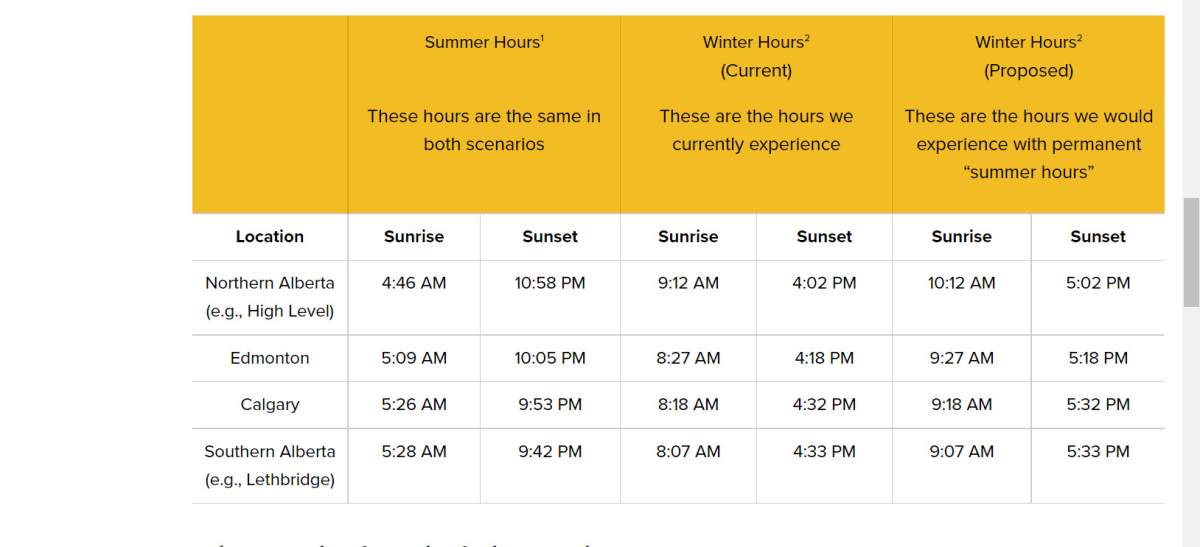The provincial government wants to know if you’d like Alberta to adopt year-round Daylight Saving Time, which is summer hours, eliminating the need to change the clocks twice a year.

That’s one of the questions on municipal ballots in the 2021 election.
University of Lethbridge Neuroscience professor Dr. Robert McDonald said it’s much more complicated than deciding to stay with “springing forward” and “falling back.”
“It turns out that the province seems to be wanting us to decide between that which is not great, to one that’s even worse, and that’s constant Daylight Saving Time.”
Mcdonald has studied the effects of circadian dysfunction on brain and body, like shift work.
He said everyone is impacted differently, with some suffering serious health impacts.

Get weekly health news
“Daylight Saving Time has a lot of problems and the reason is is that your social clock — the one being impinged on you or you are being forced to follow by society — is one hour earlier than your body clock.”
He added the best option would be constant Standard Time.
“The advantage of that is your natural body clock — getting set by the light-dark cycle — is much closer to the societal clock, so things are aligned throughout the year more consistently.”
Premier Jason Kenney said switching to Daylight Saving Time permanently would sync Alberta with neighboring provinces.
“I think it would be imprudent for Alberta to go the opposite direction from all of the jurisdictions in our part of North America,” said Kenney.
If the majority of Albertans vote yes, the change will not happen before fall of 2022.



Comments
Want to discuss? Please read our Commenting Policy first.